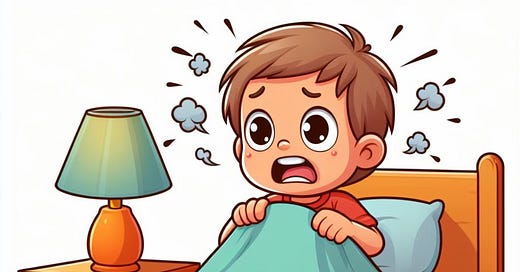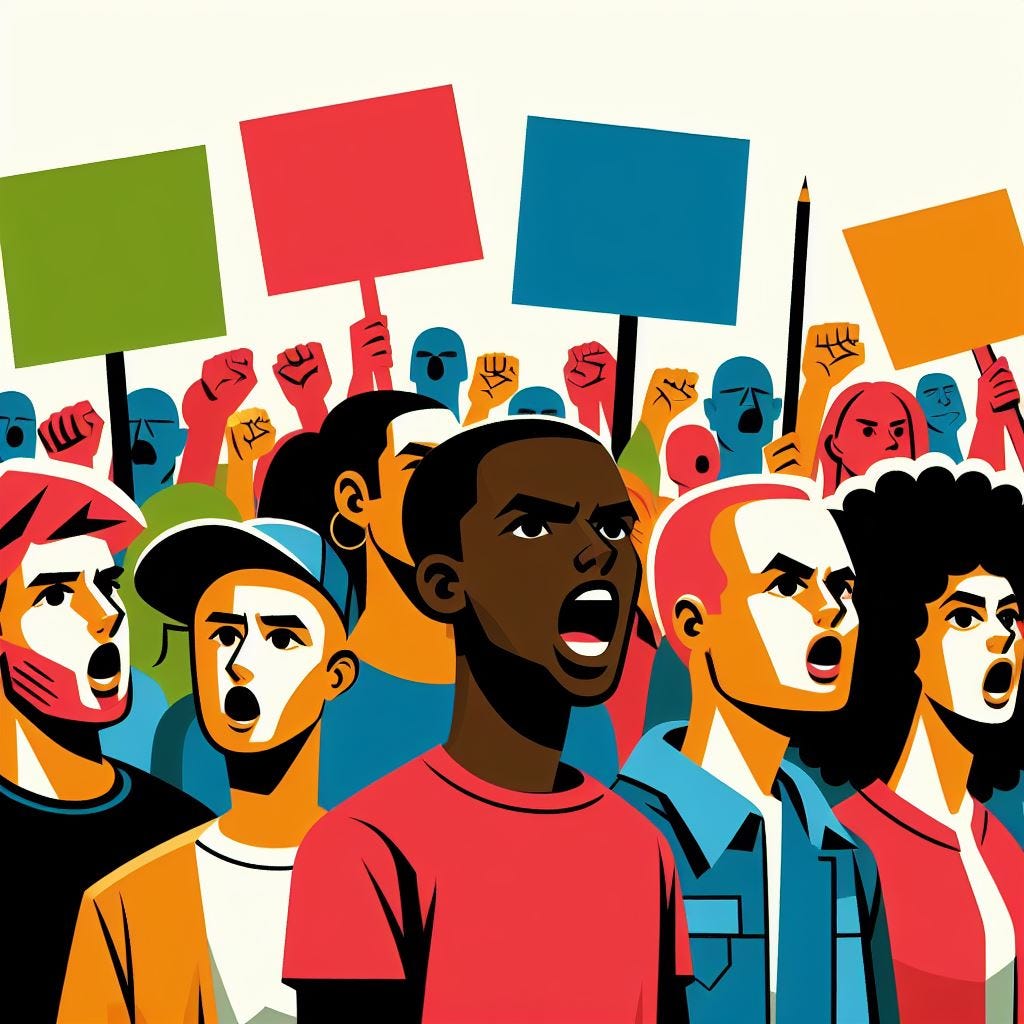What other people think of you is none of your damn business
Excuse my strong language, but I meant what I said. Allow me to explain.
If you’re anything like me (and I don’t kid myself that I’m different than the vast majority of people on this planet), then there’s one main thing that often holds you back from doing risky things.
What kinds of risky things am I talking about? Stuff where you’re putting your heart on the line somehow. Maybe you’re an author, a painter, someone who wants to be an entrepreneur. Or maybe you’re just looking to speak up a bit more in meetings at work, to share your ideas, to get a pay rise or a promotion, or just to stand up for once to someone in your family who tends to ride roughshod over your opinions through the sheer forcefulness of their own.
That thing I’m talking about is the fear of what other people might think of you. And I don’t even mean that you’re afraid of what they might say, most of the time.
I’m a huge horror fan. I adore a scary movie or a frightening story. To be honest, I’m somewhat disillusioned with a lot of modern horror though. Many films from recent years tend to rely far too heavily either on rivers of blood (quite literally in some cases, I’m looking at you Evil Dead (2013)), heavy GCI with huge levels of body horror and gore, or endless jump scares.
Yawn.
To me, the most frightening thing is what you don’t see, because then it allows your imagination to fill in the blanks, and that’s often far worse.
Take The Fog (1980). It’s one of my favourite films of all time, a real classic from the amazing director John Carpenter. If you haven’t seen it, you should give it a go. Jamie Lee Curtis is in it, in an early role, and her mother, Janet Leigh - another horror film legend - is also in it, although they don’t have many (or any?) scenes together.
Anyway. I digress. The plot of the story, according to IMDb is:
An unearthly fog rolls into a small coastal town exactly 100 years after a ship mysteriously sank in its waters.
The fog brings with it a crew of ghostly pirates, out for revenge. It’s a horror film tour de force, even if Tom Atkins is a slightly unlikely leading sexy man for the lovely Jamie Lee to sleep with, in my opinion anyway.
My point is, there’s hardly a drop of blood in the film, and not much in the way of gore or body horror. Not only that, you never actually see one of the pirates, close up. All you see is ghostly shapes, in the fog, and hooks being used as lethal weapons on the unsuspecting townsfolk while the wonderful Adrienne Barbeau tries her best to save the town from her lofty position in a lighthouse high above the action.
Marvellous. But, yeah. The point I’m making is that what you don’t see is often worse that what you do.
And this follows with spending time worrying about what people think about you. It’s not always what they might say about you or your work (in fact, sometimes it’s better when they do just come right out and tell you what they think, even if it’s not good), but often what they’ll think about you that’s the most terrifying and unknowable thing.
So, as always, I’m saying that allowing other peoples’ judgement to hold you back is a totally normal and understandable thing.
That’s before you acknowledge that the Internet is a bit of a free-for-all when it comes to people making nasty comments about other peoples’ work. I stopped going on message boards years ago (even on something as innocuous as IMDb) because of the way people speak to one another, in their endless search to a) be right or b) seem knowledgeable.
So, yes. It’s a scary, scary thing to go against the crowd, to raise your voice or to put your precious creative babies out there to be mercilessly skewered by someone who’s probably just annoyed that either you thought of it first, or that you managed to burst through your creative blocks and to get something out there in the first place. And a lot of the bilge you read online is because people are jealous, and terrified that their own lives are going to waste. I’m not sure shouting at strangers online is going to help them achieve their own goals, but it’s up to them, ultimately.
But I want you to turn this on its head for a moment. Is your opinion about things anything to do with anyone else? Even your nearest and dearest?
I pride myself on being quite a spiritual person. My ex, not so much. But did that stop me from knowing that I believe (in something, anyway!), even if he was a confirmed atheist? Nope.
My beliefs are mine, and they’re nothing at all to do with anyone else. What I think about other controversial topics (such as politics) is also my business, and I share those thoughts only with people I know well and trust.
So, if what you think about other people, their beliefs and their dress sense is nothing whatsoever to do with other people, why would you imagine for a nanosecond that the reverse applies?
And you’ll never manage to please all of the people, all of the time, no matter what you do. In fact, I often remind myself of this quote:
By definition, when you make something no one hates, no one loves it. - Tibor Kalman
Yes, you could write middle of the road stuff. You could paint in the same style as someone who’s come before. You could toe the party line in every meeting you’ll ever attend. You could fold and just agree with everyone who has a strong opinion until your head starts to spin.
But are people who do this the people who we admire the most, at the end of the day?
Hell, no! We admire the radical thinkers, the people who go against the grain, the people who stand up for what they believe despite the loud cries and angry censure of other people.
Folks like Martin Luther King Jr., like Mahatma Gandhi, like Greta Thunberg. Insert the people you admire here.
Why do we admire them? Even if you might disagree what they stand for?
Because they have balls. Chutzpah, call it what you will. They don’t give a shit what you - or anyone else - thinks about them, because they have a purpose, and they believe wholeheartedly in what they’re doing.
We could all stand to take a leaf out of their books, I think, and to say to ourselves often, either in our heads or out loud: “what other people think about me is none of my damn business”.
I do this when I’m about to press ‘publish’ on a post, or ‘send’ on an email to my email list.
Do you worry too much about what other people think about you? Is it time to stop?
I’ll leave you with this one final thought:
“You’ll stop worrying what people think about you when you realize how seldom they do.” – David Foster Wallace






